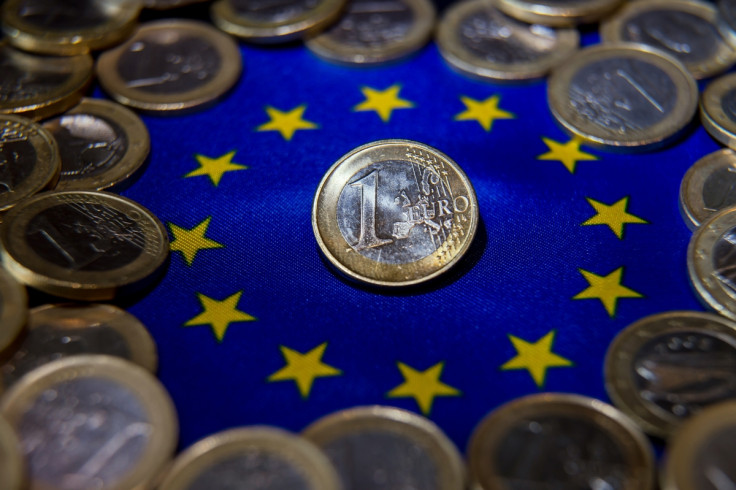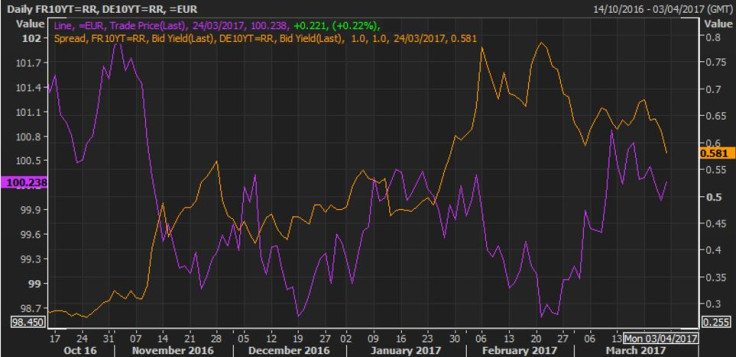What the populist turn could mean for the Euro
As the general election looms in France, its aftermath could have a profound impact on the euro.

Investors everywhere are trying to determine whether the wave of populism that engulfed the UK and US in 2016 will spread to mainland Europe in 2017. Support for populist parties has been growing since the global financial crisis, as voters become increasingly disillusioned with established politicians and demand real change.
In the UK, after months of Ukip chipping away at the Conservative poll numbers in the run-up to the 2015 general election, Prime Minister David Cameron offered a referendum on the UK's membership of the EU in a desperate attempt to woo back those that had changed their allegiance.
This calculated risk ultimately backfired in June last year when the UK voted to leave the EU, despite Cameron personally campaigning to remain, leading to his resignation.
It also served as an important reminder that these populist movements don't need to rise all the way to the top in order to influence the future of the country; Ukip has achieved its primary objective while not even getting close.
And in the US, Donald Trump repeatedly referred to the UK during his own campaign to become President, praising the country's old ally for "taking back control". Trump's pledge to "Make America Great Again" was in effect a pledge to put US people first, in line with similar demands from people in countries all around the world, turning towards nationalism as they feel let down by globalisation.
The year 2017 has been billed as one in which we find out just how disillusioned those in mainland Europe have become with the political elite and the status quo they offer. Voters here arguably have far more to be angry about given the teething problems associated with forming an ever closer union, the eurozone debt crisis and the weakness that persists in the economy, almost a decade on from the global financial crisis.
The region passed its first of three tests this year, with Geert Wilders in the Netherlands – leader of the populist PVV party – failing to win an election despite at times leading in the polls. Wilders' late slip in the polls and failure to live up to the hype on voting day came as a huge relief to the European elite who are determined for populist movements not to threaten their ambitions of an ever closer union.
While Brexit has presented leaders with a huge challenge, the eurozone's loss of a founding member could mark the beginning of the end of the project. It will therefore come as a huge relief that Marine Le Pen's lead in the first round of polls is slipping.
Emmanuel Macron, the centrist pro-EU candidate, is taking the lead in some polls by 26% to 24.5%. Considering the considerable lead already commanded, in the expected event that the two make it through to the second round on 7 May, could the French election be heading the same way as the Dutch?
The French election is widely considered the greatest political threat this year, as Marine Le Pen promises a vote on France's membership of the eurozone and the EU. While the polls currently suggest Le Pen has a substantial gap to close in the second round, there remain a huge number of undecided voters – as high as 43% according to a recent Oxoda poll – that will ultimately decide how the election goes.
Given how the UK and US votes went, it may be foolish to make assumptions about which way they will vote. While a Le Pen victory could threaten to destroy the eurozone, as it stands the risk associated with it is not really being seeing in the euro currency itself.
The spread between French and German 10-year yields appears to be a good barometer of market perceived Le Pen risk, with the former rising and falling in line with the National Front leaders' poll lead over her closest rivals Emmanuel Macron and Francois Fillon.

(Source: Thomson Reuters Eikon Terminal)
The Reuters euro currency index tracked this in February, but appears to have decoupled in March, which may perhaps represent some complacency creeping in on the back of Macron's rise in the polls and Wilders election failure.

(Source: FT French Presidential Poll Tracker)
If complacency is creeping in then this could leave the euro, as well as French stocks and debt vulnerable to a substantial drop in the event of a Le Pen victory. Of course, the downside may not be on the same scale as we saw in the UK after the referendum as, while Brexit may mean Brexit, Le Pen does not mean Frexit. Although, it would be a major step towards it.
Craig Erlam is senior market analyst at foreign exchange and financial services provider OANDA, a company he joined in 2015. With years' of experience as a financial market analyst and trader, he focuses on both fundamental and technical analysis while conducting macroeconomic commentary.
© Copyright IBTimes 2025. All rights reserved.




















